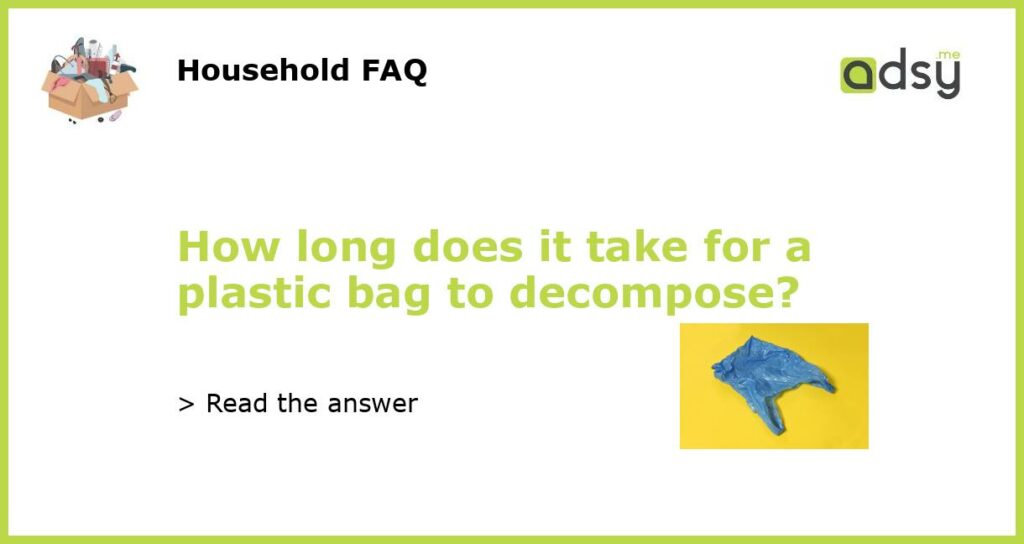Plastic bags: A problem that doesn’t disappear
Plastic bags have become an ubiquitous presence in our daily lives. From grocery stores to shopping malls, these lightweight carriers are used to transport everything from food to clothing. However, the convenience they provide comes at a high environmental cost. Plastic bags can take hundreds of years to decompose, and their persistence in the environment has detrimental effects on ecosystems and wildlife. Let’s take a closer look at how long it takes for a plastic bag to break down and the impact it has on our planet.
The lifespan of a plastic bag
Plastic bags are made from petroleum-based materials, such as polyethylene, which are not biodegradable. This means that they cannot be broken down by natural processes like bacteria or fungi. Instead, plastic bags photodegrade, meaning they break down into smaller and smaller pieces when exposed to sunlight. While the plastic bag may eventually become too small to see, it never truly goes away.
In fact, it is estimated that it can take anywhere from 20 to 1000 years for a plastic bag to decompose, depending on various environmental factors. Factors such as the type of plastic, the thickness of the bag, and the conditions in which it is exposed to all influence the rate of decomposition. In general, plastic bags in landfills take longer to break down than those littered in open environments.
The environmental impact of plastic bags
The long decomposition time of plastic bags has far-reaching consequences for our environment. Plastic bags that are discarded inappropriately end up in landfills, enter rivers and eventually make their way into the ocean. This has led to the development of massive plastic pollution problems around the world.
Plastic bags can have detrimental effects on wildlife and ecosystems. When ingested, plastic bags can cause blockages in the digestive systems of animals, leading to starvation or suffocation. Marine animals, such as sea turtles and seabirds, often mistake plastic bags for food and suffer severe consequences as a result.
Furthermore, plastic bags do not fully break down into harmless substances; instead, they break down into smaller particles known as microplastics. These microplastics can contaminate water sources and soil, posing threats to both terrestrial and marine life.
Alternative solutions: Reducing plastic bag consumption
The negative impact of plastic bags on the environment has prompted governments and environmental organizations to take action. Many countries have implemented bans or levies on single-use plastic bags to encourage consumers to switch to reusable alternatives.
One popular alternative to plastic bags is the use of reusable cloth bags made from natural fibers such as cotton or jute. These bags are not only more environmentally friendly but also sturdier and more durable than plastic bags. By making the switch to reusable bags, individuals can significantly reduce their contribution to plastic pollution.
In addition to using reusable bags, consumers can also opt for biodegradable or compostable alternatives to plastic bags. These bags are designed to break down more quickly and harmlessly in the environment. However, it is important to note that these bags still require proper disposal to ensure that they end up in composting facilities rather than landfills.
A lasting problem
Plastic bags are a significant environmental issue that requires urgent attention. While they may seem like a small and insignificant part of our daily lives, their impact on our planet is immense. From their long decomposition time to their harmful effects on wildlife and ecosystems, plastic bags contribute to a global plastic pollution crisis.
By reducing our consumption of plastic bags and opting for reusable or compostable alternatives, we can all play a part in mitigating this problem. It is crucial for individuals, governments, and businesses to work together to find sustainable solutions that minimize our reliance on plastic bags and protect the health of our planet.






